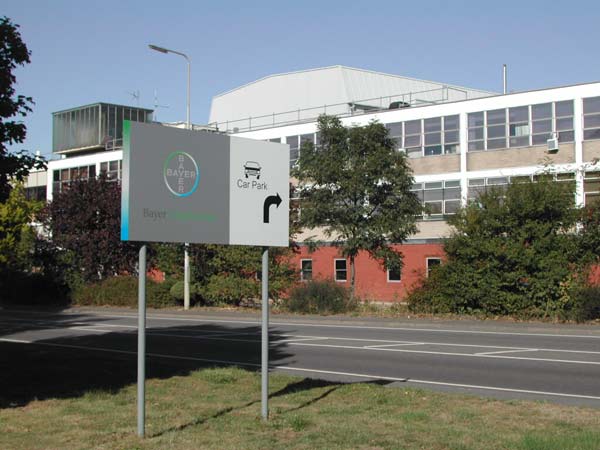Second Kind Of Bayer GM Rice Detected In EU
CBGnetwork | 20.10.2006 17:19 | Bio-technology | Cambridge | World
French authorities' recently found unauthorized rice LL62 in France imported from the U.S. and notified the European rapid alert system, spokesman Philip Tod told Dow Jones Newswires

Second Kind Of Bayer GM Rice Detected In EU
FRANKFURT -- A second kind of genetically modified rice developed by German chemicals and pharmaceutical company Bayer AG (BAY) has been detected in the European Union, a E.U. spokesman confirmed to Dow Jones Newswires Friday.
French authorities' recently found unauthorized rice LL62 in France imported from the U.S. and notified the European rapid alert system, spokesman Philip Tod told Dow Jones Newswires.
The E.U. spokesman said the LL62 rice is still unauthorized in the E.U., but is in the approval process. The application to import the rice into the E.U. was made three years ago, Philipp Mimkes of Coordination gegen Bayer Gefahren, or CBG, an anti-Bayer campaign group, told Dow Jones Newswires.
Although the rice is authorized for marketing in the U.S., it has not been commercialized there, Tod added. Bayer spokeswoman Anette Josten said "we are taking note of this report about an alleged positive detection made by the French authorities and continue to work closely with the governments and others in the rice industry as more information becomes available." She also confirmed the rice hasn't been commercialized in the U.S.
In September of this year, traces of Bayer's LL601 rice were found which were not authorized in the U.S. Later the LL601 rice was also found in Europe for example in Germany in rice sold in discount supermarkets.
Open Letter: EU urged not to approve Bayer´s GM Rice
GREENPEACE PRESS RELEASE, 19 OCTOBER 2006
Another GE rice from Bayer contaminates EU food supplies
Greenpeace calls for EU strategy to prevent food and feed contamination with GMOs
French authorities have detected another variety of illegal genetically engineered (GE) rice contained in US imports to the EU. The third illegal GE rice scandal in Europe in two months should prompt urgent action on behalf of regulatory authorities, Greenpeace said today.
Tests in France found US rice containing a GMO called Liberty Link 62 (LL62), which is not approved in Europe (1). This comes on top of test results from several EU countries since August showing that US rice on sale in Europe is contaminated with another unauthorised GE rice variety, LL601.
For the second time, the source of the contamination is Bayer Cropscience. Greenpeace believes that Bayer should be held accountable for its negligence, as it is clearly incapable of controlling contamination of rice with its genetically engineered varieties. In the interests of the global rice supply, Bayer should withdraw from all research, field trials and applications for GE rice globally.
The European Commission on Thursday announced that it would seek member state approval for compulsory tests on all US long-grain rice imports, to prove the absence of LL rice varieties. The Commission should be congratulated for not giving in to US demands to weaken import testing standards. The Commission's proposal will be examined on Monday by a committee of EU food safety experts. On the same day, EU environment ministers may address the question of how to avoid contamination of the food chain with illegal GMOs.
Greenpeace is urging ministers to develop a strategy to prevent further contamination by GE products: any country which grows GMOs for commercial or experimental use should provide the EU and member states with a full list of these crops, and reliable testing methods for each of them. GE crop-growing countries should have to provide a certificate to accompany imports to the EU proving that they are not contaminated with crops that have not been approved in Europe. In the absence of reliable certification and testing systems, the EU should prohibit imports of products which may have been contaminated.
Greenpeace also expressed concern that the EU has still not agreed on emergency measures regarding the import of illegal Bt63 rice from China, identified by testing on behalf of Greenpeace and Friends of the Earth six weeks ago, and confirmed by official tests in Germany, France and Austria. While the EU imposed emergency measures in response to news of the US rice contamination within five days of the notification, no such steps have been taken on Bt63, despite its potential health risks (2).
NOTES TO EDITOR
(1) LL62 rice is legal in the United States (since 2000) and Canada, but is not authorised anywhere else in the world. LL601 is not legal anywhere. Neither is Bt63, detected in Chinese rice products on sale in Europe.
(2) For further information on the Chinese GE rice contamination, see
 http://www.greenpeace.org/international/press/reports/IllegalChinaGErice
http://www.greenpeace.org/international/press/reports/IllegalChinaGErice CONTACT
Martina Holbach, Greenpeace GMO campaigner, +32 (0)2 274 1906
Katharine Mill, Greenpeace European Unit media officer, +32 (0)2 274 1903
distributed by: Coalition against BAYER Dangers (Germany)
www.CBGnetwork.org
 CBGnetwork@aol.com
CBGnetwork@aol.com Tel: (+49) 211-333 911 Fax: (+49) 211-333 940
please send an e-mail for receiving the English newsletter Keycode BAYER free of charge
Advisory Board
Prof. Juergen Junginger, designer, Krefeld,
Prof. Dr. Juergen Rochlitz, chemist, former member of the Bundestag, Burgwald
Wolfram Esche, attorney, Cologne
Dr. Sigrid Müller, pharmacologist, Bremen
Eva Bulling-Schroeter, member of the Bundestag, Berlin
Prof. Dr. Anton Schneider, biologist, Neubeuern
Dorothee Sölle, theologian, Hamburg (died 2003)
Dr. Janis Schmelzer, historian, Berlin
Dr. Erika Abczynski, pediatrician, Dormagen
CBGnetwork
 e-mail:
CBGnetwork@aol.com
e-mail:
CBGnetwork@aol.com
 Homepage:
http://www.CBGnetwork.org
Homepage:
http://www.CBGnetwork.org